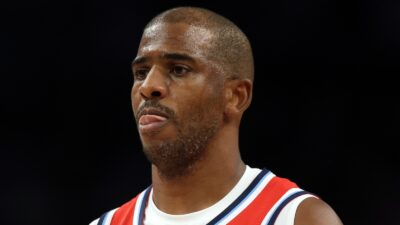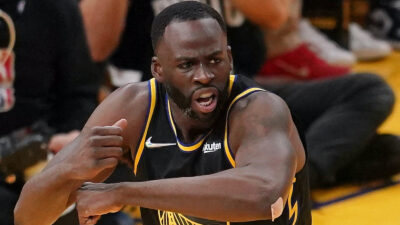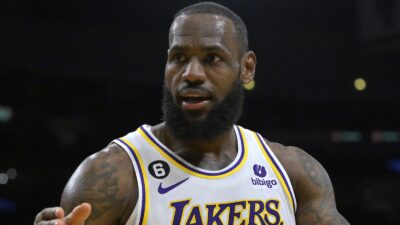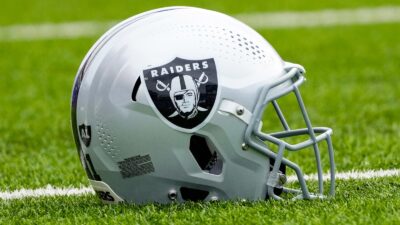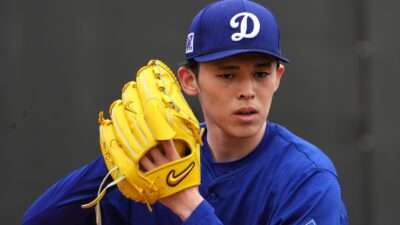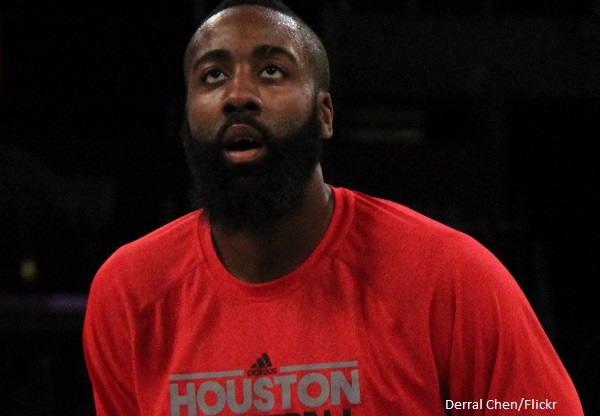
Sports fans were able to satisfy their desperate hunger for competition while the NBA remains on hiatus by watching ESPN’s 10-part documentary, “The Last Dance.” Iconic NBA documentaries can function almost as a time machine, guiding the viewer through a notable part of the league’s history, while still providing a similar thrill to the one felt when experiencing games live.
“The Last Dance” was compelling at every turn. It seems fitting that ESPN created arguably the greatest NBA documentary of all time while telling the story of the greatest NBA player of all time. While there may never be a story that parallels Michael Jordan’s ascension to basketball supremacy, the last decade of NBA action has produced a magnitude of engrossing stories. These stories have a profound impact on the current framework of the NBA and may also be worthy of their own documentary one day.
Here are some subjects we would love to see covered in-depth in a future documentary.
The James Harden Trade
In 2012, the Oklahoma City Thunder had three under-25-year-old future league MVPs on their roster. Fast forward to 2020, and none of the aforementioned MVPs are donning blue and orange. Following a loss to the Miami Heat in the 2012 NBA Finals, the Oklahoma City Thunder traded the reigning Sixth Man of the Year, James Harden, to the Houston Rockets before the start of the 2012-13 season. In return for Harden, the Thunder received a package comprised of Kevin Martin, Jeremy Lamb, and three future draft picks that became Steven Adams, Alex Abrines, and Mitch McGary, respectively.
While the initial reaction to the trade around the NBA was one of bewilderment, the Thunder’s return haul was not as preposterous as it appears in 2020. Martin was an accomplished scorer throughout his career, and his shooting touch from outside paired nicely with Kevin Durant and Russell Westbrook. Lamb was thought of as a potential building block for the future. And every team cherishes draft capital. The part of the deal that remains puzzling, and that would serve as the theoretical commencement point for a future documentary, was the timing of the trade.
Harden was traded during the last year of the rookie contract he signed when joining the Thunder. The Thunder could have gone into the 2012-13 season with essentially the same team that led them to the Finals just a season prior. Harden was set to become a restricted free agent after the season, meaning the Thunder had the power to match any offer sheet he signed with another team. The Thunder knew that Harden would likely garner a max contract in free agency and were reluctant to commit to him with Durant and Westbrook already having signed extensions. What makes the trade even more agonizing for Thunder fans in retrospect is they would have been able to accommodate Harden’s extension had they waived Kendrick Perkins and the roughly $8 million remaining on his contract in the summer of 2013.
Even without Harden, the Thunder remained a perennial playoff team until Durant’s untimely departure in 2016. However, they were never able to make it back to basketball’s biggest stage. What makes this story even more intriguing was the close bond that OKC’s young trio shared. While it does not seem conceivable that all three players would have realized their MVP potential on one team, by trading Harden, the Thunder missed out on a potential dynasty capable of competing for championships for years to come. Examining the factors that led to the trade while listening to Harden, Durant, Westbrook, and others speak candidly about it would make for must-watch TV. The Thunder’s decision to trade James Harden will forever remain one of the most impactful what-if scenarios in NBA history.
One thing is for certain: for the Thunder, hindsight truly is 20/20.
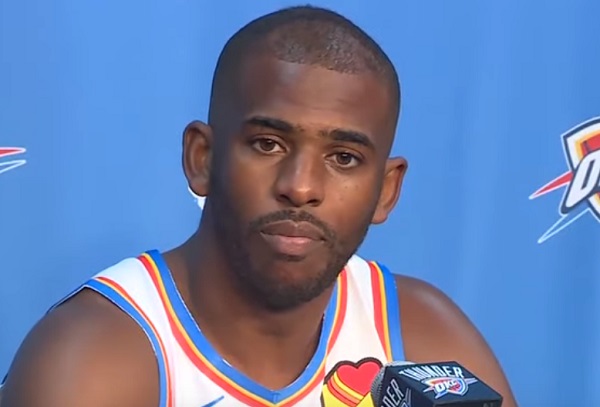
David Stern’s intervention with the Chris Paul trade
While production on a documentary centered around the illustrious career of the late Kobe Bryant is undoubtedly already underway, the focus for this hypothetical documentary is an attempted Lakers trade that never came to fruition. December of 2011 was a notable time in the NBA for many reasons. After a lockout that spanned from July to December, a decision was reached to tip the season off on Christmas Day. But before the season began, the Lakers (one of the league’s preeminent franchises) attempted to add one of the NBA’s brightest stars.
After operating under financial distress, the New Orleans Hornets were sold to the NBA in December of 2010. A franchise in a small market experiencing financial difficulties was not exactly a marquee destination for NBA players. The Hornets’ front office recognized the hand they were dealt and attempted to remedy the situation by dealing their superstar point guard, Chris Paul, for assets before he opted out of his contract to become a free agent the following summer. And when the Hornets thought they had a deal in place to send Paul to the Lakers, then-NBA commissioner, David Stern, made things interesting.
Despite owning the Hornets for roughly a year before the attempted trade, league officials had not intervened on any of the Hornets’ other basketball decisions. Stern had several valid reasons for not wanting to trade Paul to the Lakers, but exercising his power to nix the trade remains one of the most audacious actions taken by a commissioner of any sport. The NBA was attempting to sell the Hornets, which became a far more daunting task if the face of the Hornets franchise was a Laker. An even more substantial factor than attempting to keep the Hornets afloat was the backlash Stern received from small market owners around the league. Cleveland Cavaliers owner Dan Gilbert was more than willing to voice his displeasure about the trade. Gilbert feared that if superstars like Paul were able to leverage their way to a large market, small market franchises would have no chance of re-signing their homegrown talent.
The potential reasons for Stern denying the trade could fill a documentary on their own, but it’s examining the ramifications of a successful trade that pique intrigue. At the time of the trade, Paul was undoubtedly the premier point guard in the NBA, and Kobe Bryant was still in prime Black Mamba form, averaging over 27 points per game. Paul and Bryant in the same backcourt would have been a nightmare for opposing teams, as it meant two of the NBA’s fiercest competitors joining forces. If the trade had gone through, the Lakers would have likely turned their attention to acquiring Dwight Howard and forming a Big 3 to rival the one assembled in South Beach by the Miami Heat. The Heat were fresh off a Finals defeat at the hands of Dirk Nowitzki and the Dallas Mavericks, while LeBron James was still yet to win his first championship.
If David Stern had not vetoed the Lakers trade for Chris Paul, the landscape of the NBA could be entirely different. Would Kobe Bryant and LeBron James have met in the Finals? Could Bryant have tied Jordan’s ring total at six? Could he have surpassed him with seven? Kobe wondered those questions. What would Chris Paul’s career look like if he never became the mayor of Lob City? With no way to answer any of these questions now, the late Stern’s veto of the trade will live on in infamy.
Jack Reining covers the NBA for Larry Brown Sports. You can follow him on Twitter @JackReining3

